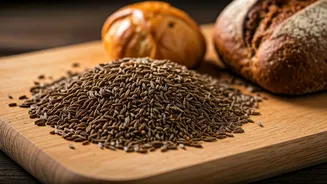Plaques: The Culprit
Arterial plaques, a significant concern in cardiovascular health, arise from a complex interplay of factors, leading to the gradual buildup of substances
like cholesterol, fats, and calcium within the arterial walls. This process, often referred to as atherosclerosis, narrows the arteries, restricting blood flow to vital organs. The damage begins silently, with inflammation playing a key role, initiating the process. Initially, the inner lining of the artery is damaged. The body responds to this injury by sending inflammatory cells, which then attract lipids that eventually form a plaque. As plaques grow, they can cause symptoms such as chest pain or shortness of breath. Over time, these plaques can rupture, leading to blood clots, which can then block blood flow completely, resulting in heart attacks or strokes. Understanding these initial stages is crucial for early detection and preventative measures, emphasizing the importance of regular health check-ups and a proactive approach to heart health. Lifestyle choices significantly influence the progression of arterial plaque formation, underscoring the need for informed decisions regarding diet and exercise.
Dietary Strategies
Dietary changes play a vital role in preventing and reversing arterial plaque formation, with a focus on incorporating heart-healthy foods into daily meals. A diet rich in fruits, vegetables, whole grains, and lean proteins provides essential nutrients, antioxidants, and fiber. These elements help to lower LDL cholesterol levels (the 'bad' cholesterol) and reduce inflammation, a key contributor to plaque buildup. Specifically, foods containing omega-3 fatty acids, such as salmon and flaxseeds, can help reduce triglycerides and support healthy arteries. Limiting saturated and trans fats found in processed foods and red meats, is crucial, as they can elevate LDL cholesterol and promote plaque formation. Emphasizing monounsaturated fats found in olive oil, avocados, and nuts can help lower LDL cholesterol while providing essential nutrients. Regular consumption of foods rich in soluble fiber, such as oats and beans, also helps to lower LDL cholesterol levels. A balanced diet, implemented consistently, will be a cornerstone of heart health, offering both immediate benefits and long-term protection against cardiovascular diseases.
Exercise & Movement
Regular physical activity is an essential component of cardiovascular health, helping to prevent and manage arterial plaque buildup. Engaging in moderate-intensity aerobic exercises, such as brisk walking, jogging, or cycling for at least 150 minutes per week, improves circulation and lowers blood pressure. Exercise also helps to regulate cholesterol levels by increasing HDL cholesterol (the 'good' cholesterol) and decreasing LDL cholesterol. Strength training exercises, performed at least two days per week, contribute to overall cardiovascular health by improving muscle strength and metabolism. Exercise helps reduce systemic inflammation, which is directly linked to the development of arterial plaques. It also promotes weight management, with obesity being a significant risk factor for heart disease. Integrating exercise into your routine does not require intensive workouts; small, consistent steps, like taking the stairs instead of the elevator or going for a walk during your lunch break, can have a noticeable impact. Consistency and finding activities you enjoy are essential for long-term adherence, making exercise a sustainable and effective strategy for heart health.
Other Beneficial Tips
Beyond diet and exercise, various lifestyle adjustments can significantly contribute to improved vascular health and the reversal of arterial plaque damage. Managing stress is crucial, as chronic stress can elevate blood pressure and contribute to inflammation, increasing the risk of plaque formation. Practicing relaxation techniques, such as meditation, yoga, or deep breathing exercises, can help mitigate stress levels and promote a healthier heart. Quitting smoking is one of the most impactful steps, as smoking damages blood vessels and accelerates the formation of plaques. Limiting alcohol consumption to moderate levels is also advisable, as excessive alcohol intake can elevate blood pressure and contribute to cardiovascular issues. Ensuring adequate sleep, typically 7-9 hours per night, is essential for overall health, including heart health. Chronic sleep deprivation can increase the risk of cardiovascular diseases. Staying well-hydrated is also crucial, as proper hydration supports optimal blood flow and cardiovascular function. Consulting with healthcare professionals to monitor your blood pressure, cholesterol levels, and other vital signs allows for early detection and intervention, significantly contributing to the long-term well-being of the heart.


















